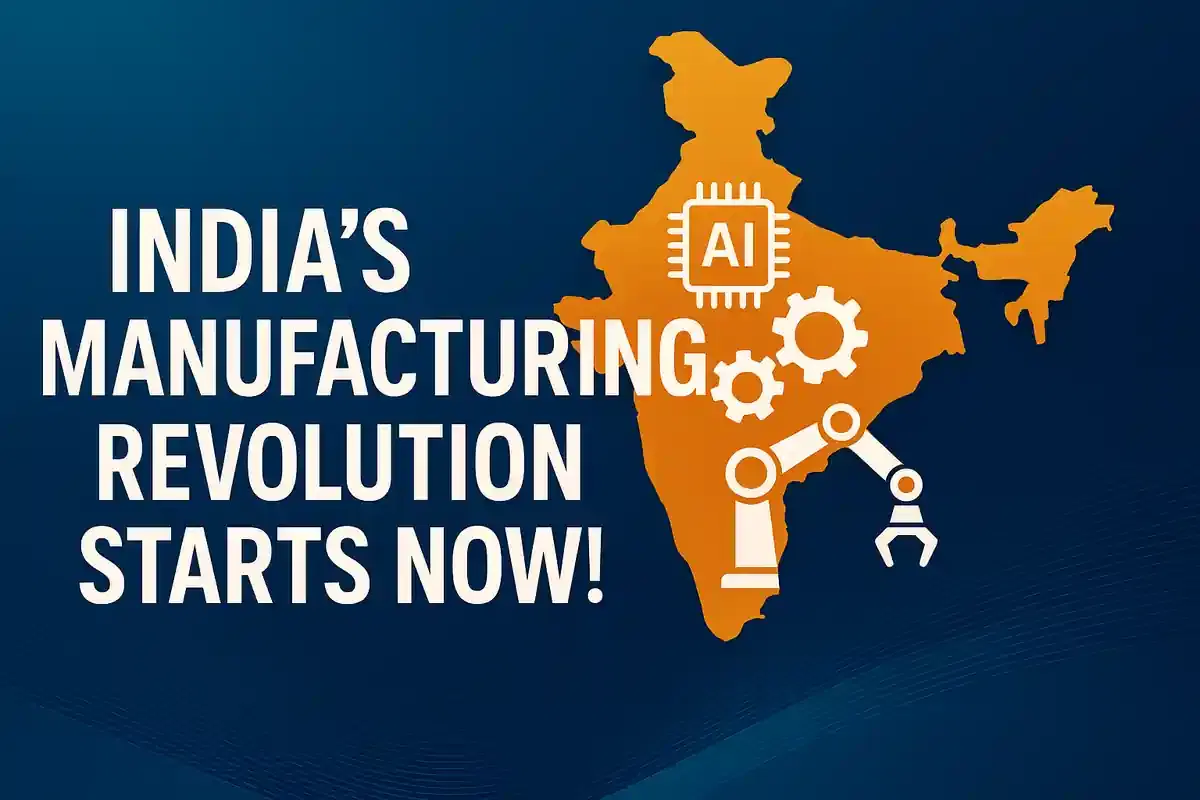NITI Aayog Unveils Roadmap for India's Global Manufacturing Leadership
Industrial Goods/Services
|
29th October 2025, 3:30 PM

▶
Short Description :
Detailed Coverage :
NITI Aayog, in collaboration with the Confederation of Indian Industry (CII) and Deloitte, has released a significant report titled “Reimagining Manufacturing: India’s Roadmap to Global Leadership in Advanced Manufacturing.” The plan's core objective is to increase the manufacturing sector's contribution to India's Gross Domestic Product (GDP) to 35%. The report identifies 13 high-impact manufacturing sectors and five key clusters, including engineering, consumer products, life sciences, electronics, and chemicals. Critical enablers highlighted are artificial intelligence, machine learning, advanced materials, digital twins, and robotics. The roadmap recommends prioritizing advanced manufacturing under the National Manufacturing Mission (NMM), creating a Global Frontier Technology Institute for technology adoption, designating champion organizations, preparing for the servicification of manufacturing, and establishing 20 advanced industrial hubs by 2028. Deloitte pointed out a $5.1 trillion manufacturing gap and stressed the need for 12% annual sector growth and increased total factor productivity. NITI Aayog CEO B V R. Subrahmanyam announced the upcoming launch of the National Manufacturing Mission.
Impact: This strategic initiative signals a strong government focus on boosting India's industrial capabilities and global competitiveness. Investors can anticipate potential growth opportunities in companies specializing in advanced manufacturing technologies, automation, and export-oriented production. Successful implementation could lead to significant economic expansion, job creation, and enhanced market presence for Indian manufacturers. Impact Rating: 8/10.
Difficult Terms: Gross Domestic Product (GDP): The total market value of all final goods and services produced within a country in a given period. Artificial Intelligence (AI): The simulation of human intelligence in machines, enabling them to learn, reason, and solve problems. Machine Learning (ML): A subset of AI that allows systems to learn from data without explicit programming. Digital Twins: Virtual replicas of physical assets or processes used for simulation, analysis, and monitoring. Servicification of Manufacturing: The integration of services with manufacturing products, such as maintenance, consulting, or performance management. Total Factor Productivity (TFP): A measure of economic efficiency that accounts for output growth not explained by increases in labor or capital inputs, often reflecting technological advancements.